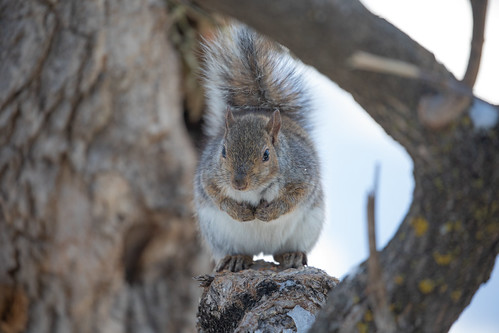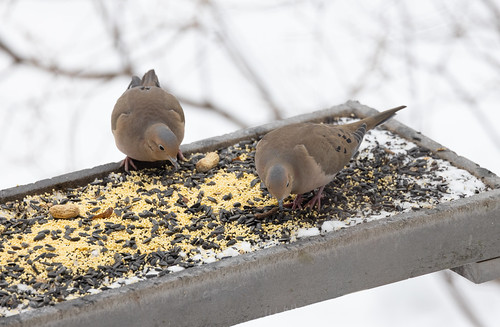My son-in-law, still adjusting to life in northern Minnesota, plays on an outdoor curling team. His game has been cancelled three weeks in a row, two weeks ago because it was double-digits below zero, the following week because it was so warm the ice was melting, and this week because it was raining. At this very moment, as I write this, temperatures are back below zero but are expected to rise into the 20s today.
This weather is of course not “normal,” but when it comes right down to it, no winter is normal anywhere—there are always days, and sometimes entire seasons, that are significantly above or below the average for temperature and precipitation. I know one TV weather forecaster who was still insisting, last time I talked to him a few years ago, that climate change is a hoax, citing every recent cold weather event as “proof.” It must be getting harder and harder for him to make that case—in the century and a quarter from 1895-2021, the daily average minimum temperatures during winter (Dec-Feb) have increased 4.9 degrees in southern Minnesota, 6 degrees in central Minnesota, and an astonishing 7.3 degrees here in northern Minnesota.
That does not mean winters are growing milder. Even though we’ve not had enough cold for Lake Superior to freeze this year, the wild swings are extremely hard on wildlife and humans both. A January snowstorm took out several of my daughter’s trees, ice dams have been a huge problem for a lot of Duluth houses, and rock-hard ice on top of deep snow makes vole hunting difficult for owls, plunging under the snow for shelter hard for grouse, and walking hard for deer.
Yesterday when a backyard squirrel, all plumped up with its tail snugly wrapped over its back, looked trustingly at Walter and me through my dining room window, I cranked the window open and Walter tossed it some peanuts. He was delighted that the squirrel instantly ran up and grabbed one to carry to a nearby branch where Walter could watch it eating. As soon as it finished the peanut, it ran back below the window and grabbed another.
Walter is 2 ½ now, and understands that squirrels, bunnies, and backyard birds all live outdoors. They can’t come in the house to warm up, but they don’t need to—their fur or feathers keep them warm as long as they have enough food. I love that he’s developing empathy, taking joy in making sure our squirrels have that food. Compassion begins with self and family, but then circles out to include friends and neighbors, including backyard wildlife. Cultivating empathy and compassion for these inner circles helps ensure that little by little it will flow further outward.
Walter and I also watched the two Mourning Doves who have been visiting my yard fairly regularly, especially on the coldest mornings. They are obviously counting on my feeder, but the fact that they don’t come every day is evidence that they have at least one other refuge somewhere near here. They’ll almost definitely get through the season in fine fettle, but I still get anxious on the coldest nights knowing how vulnerable their fleshy feet are to frostbite. I haven’t told Walter that—just reassured him that they have lots of bird seed in that feeder.
 |
| Kelli Alseth's dove |
Kelli Alseth, in Proctor, has been seeing one lone Mourning Dove every single day since early January, and every day she makes sure the bird has sunflower chips and white millet in safe, fairly secluded spots near her house. Kelli notes that the little dove has a few favorite places for eating and for roosting, including some in full sun and some sheltered from the wind.
 |
| Kelli's dove knows where it'll be warmest depending on sunlight and wind. |
We know that Kelli’s dove relies on her yard because it shows up every single day at dawn and dusk—the two most critical times for wintering birds to fill up on food. Her conscientiousness toward that one little soul tells me a lot about what kind of trustworthy and compassionate human being she is—the kind I so want my little Walter to become.
Meanwhile, Russ and I are doing everything we can to make Walter’s future as safe as possible even as climate change continues apace. Last fall we bought a heat pump, and we’re going to be installing solar panels as soon as the snow is gone this year. Being in our 70s, we won’t recoup the financial investment in our lifetime, but profits and dividends aren't always measured in dollars, and by any measure, burning less carbon is a Good Thing. No individual can make much of a difference in a global problem that is so big and so deep and so tall, but doing what we can makes me feel at least a little worthy of my grandchild’s love and trust.



